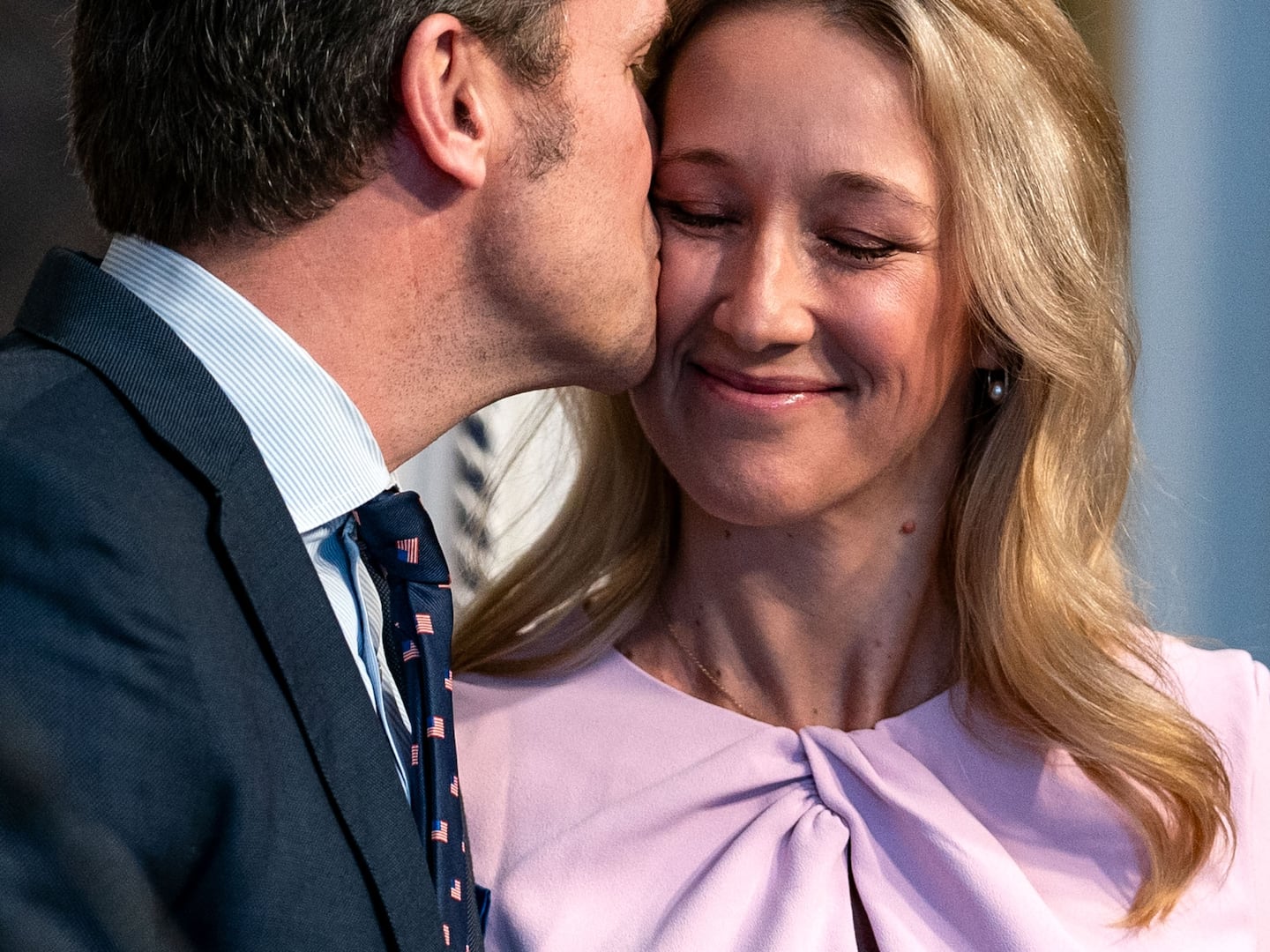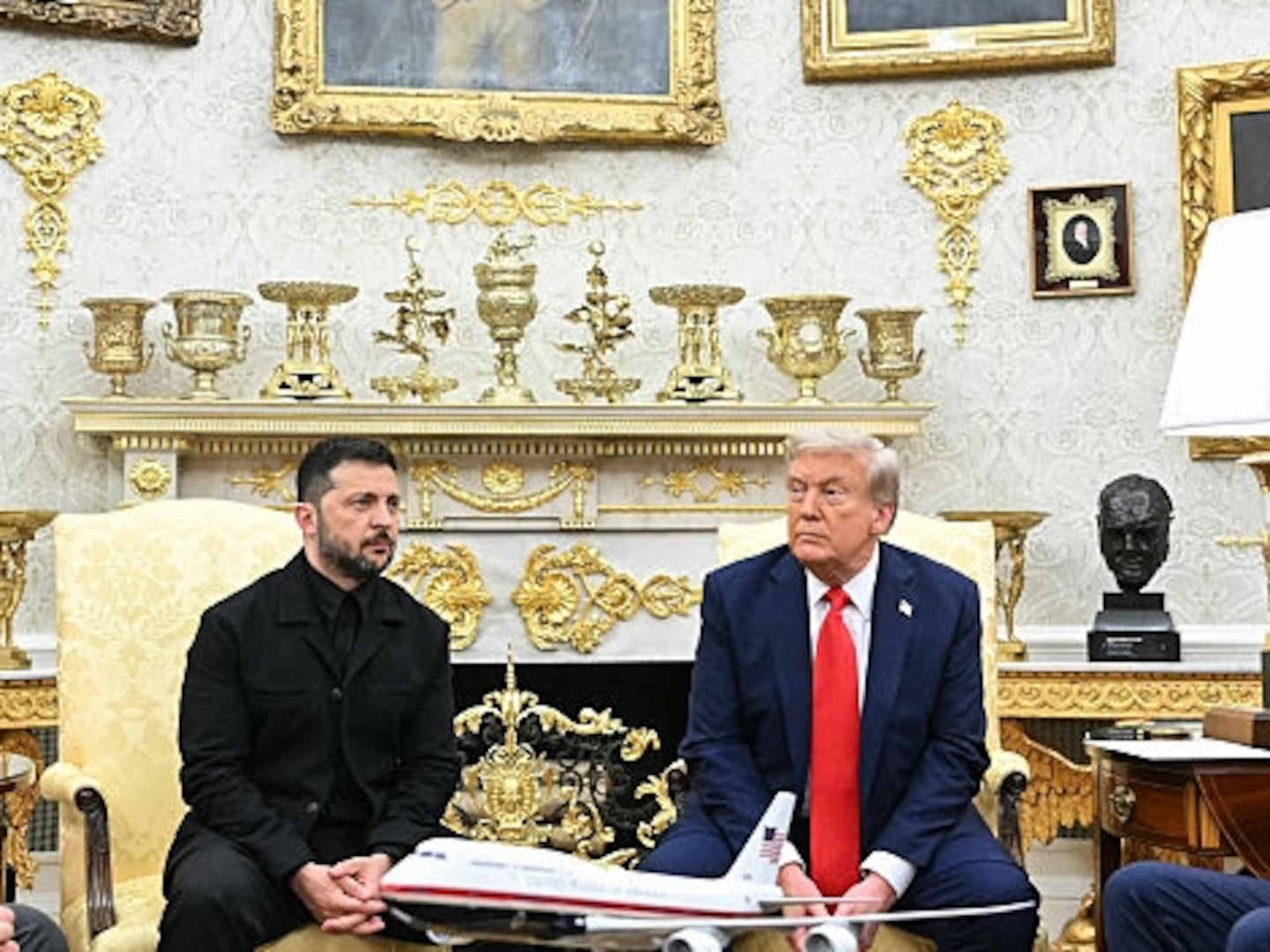House and Senate Republicans are getting increasingly jittery over President Donald Trump’s next spate of tariffs.
Since assuming office for a second time, in January, the president has imposed wide-ranging tariffs on foreign imports, including new 25 percent levies on imported cars. Hailing it as “liberation day,” he has promised more tariffs across the board from April 2.

This has seen some House and Senate Republicans break off from the pack and publicly question Trump’s methods. Several GOP senators have even indicated that they could unite with Democrats and vote to block blanket tariffs on Canada, on Tuesday. The president announced a national emergency, citing fentanyl trafficking and illegal immigration, to justify his move.
ADVERTISEMENT
Republican Sen. Susan Collins took issue with Trump’s plans. She spoke to reporters Monday, pointing to a Canadian flag pin alongside a U.S. one, on her lapel. “Imposing tariffs on Canada, which is our closest neighbor, [a] friendly ally, is a huge mistake and will cause disruption in the economies of both countries,” she said, according to Politico.
“I’m not surprised that Canada would seek to strike back and that’s going to increase costs even more for consumers,” added Collins.
She is one of several Republicans who have signaled that they will back a motion from Democrat Sen. Kaine that would terminate Trump’s March national emergency declaration.
She is set to be joined by Sen. Rand Paul of Kentucky, who is a co-sponsor of the resolution. Thom Tillis of North Carolina could also beef up the Democratic caucus vote. Sen. Chuck Grassley of Iowa, who recently pleaded with Trump to alter his Canadian tariffs because of the effect they would have in his state, has indicated he is undecided, Politico added.
Sen. Ron Johnson of Wisconsin said more tariffs is a “high-risk move” on Trump’s part. “I don’t know what his strategy is, but you look at what the market’s reaction is—I have a similar kind of reaction. I’m concerned,” he said.
Johnson previously spoke about his reservations, specifically about how tariffs might impact the manufacturing state. “I’d be concerned about retaliation against those manufacturers. I’m concerned about them losing overseas markets. I’m concerned about the cost to builders. I’m concerned about retaliation against our farmers.”
“There are a lot of concerns,” Johnson told the Milwaukee Journal Sentinel at the beginning of March.
One Republican senator spoke to The Hill anonymously last month, and expressed fear that the party will suffer a political backlash if the economy dips as a result of Trump’s tariffs. “People are concerned that we’re about to take a hit in the stock market,” they said. Indeed, the major indexes finished March with large losses due to tariff anxiety.
Just four Republicans would need to join all 47 Senate Democrats for Kaine’s resolution to win approval. However, it is likely to be a symbolic show of dissent that will die in the Republican-controlled House.

Even still, it is unusual for Trump to suffer public defiance to his whims from his own party. Even Senate Majority Leader John Thune said that, while he wants to support the president’s efforts to stop the cross-border drug trade, he is hesitant about across-the-board tariffs.
“But, as you know, I’m in a very different place when it comes to across-the-board tariffs and Canada,” he said, according to Politico. “There’s concerns about tariffs on Canada and what the ultimate objective is.”
Newly elected Republican Senator Tim Sheehy of Montana, meanwhile, admitted that the tariffs will “absolutely” lead to “short-term pain” for American consumers. However, he toed the party line and said the country will benefit further down the line.
Speaking to CNN’s Kaitlan Collins Monday night, he said it is a price worth paying in return for “long-term gain”.







